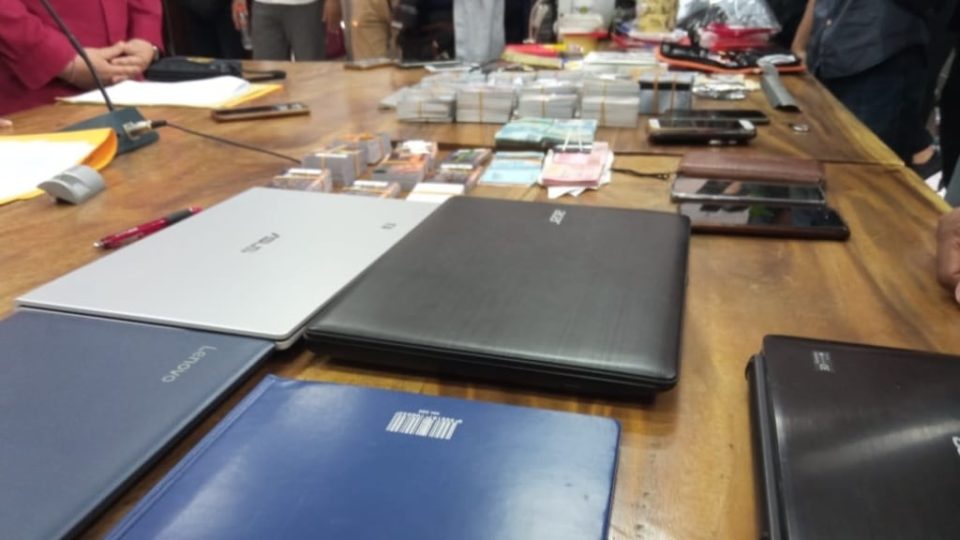The Bali Police have arrested seven Indonesians in connection with ATM skimming schemes led by foreign nationals that have robbed an estimated US$215,000 from around 1,000 victims.
Ambariyadi Wijaya, deputy director of the special crimes unit at the Bali Police, said that seven national and regional banks across Bali recently reported that their ATM units were broken into late last year. These units were located in tourist spots, gas stations, and quiet areas in Denpasar, Badung, and Gianyar.
The banks reported that their clients have lost upwards of hundreds of millions of rupiah, prompting a formal investigation that led to the arrest of the seven Indonesians, who are members of two different groups.
“There are approximately 1,000 victims, with losses of at least US$215,000 just from one bank. We will continue to input the data and coordinate with the affected banks to figure out their losses,” Ambariyadi said.
Police said the first group, comprising four suspects, worked together with a Bulgarian national convicted of skimming and currently imprisoned in Kerobokan. Three of the suspects were ex-convicts who previously served time alongside the Bulgarian in Kerobokan for drug trafficking, assault, and fraud.
“So there was communication, knowledge transfer and some kind of an agreement. By the time [the ex-convicts] got out, they were the ones on the field,” Ambariyadi said.
Meanwhile, the second group comprised three suspects who were allegedly affiliated with a Malaysian national they had met while working in the neighboring country a few years back. The foreigner taught them ATM skimming, and the group has committed the crime since 2018 across different regions in Indonesia, including Bali, Central Java, and East Nusa Tenggara (NTT).
Police have reportedly identified the Bulgarian national, but are still working to identify the Malaysian national.
Authorities reportedly seized more than 2,100 fake ATM cards during the arrests.
The suspects have been charged with articles under Indonesia’s Criminal Code (KUHP) and Information and Electronic Transactions Law (UU ITE), and face a maximum sentence of eight years in prison.
Read more news and updates from Bali here.




